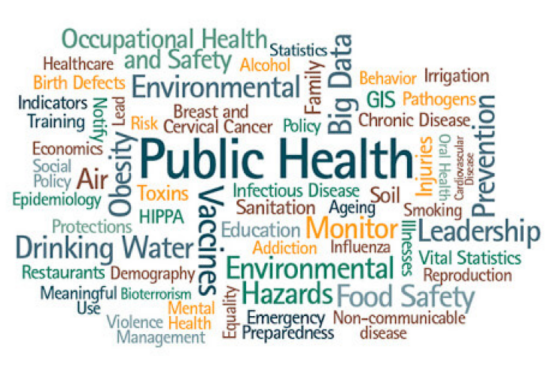|
Getting your Trinity Audio player ready...
|

Imagine coming down with a terrible bout of influenza – you’re running a high fever, your head is pounding, and you feel incapable of moving a single muscle. Usually, it’s easy to tell your supervisor and co-workers that you need a couple of days off to recover, right?
Now imagine that you are struggling with your mental health – you’re overwhelmed with stress, you’re feeling exhausted, and you don’t have the energy to show up to work. Is it as easy to write to your supervisor and ask for a few days off to take care of your mental health? Hopefully, the answer is yes, but this is often not the case.
May is observed as the Mental Health Awareness Month, which offers the perfect opportunity for us to talk about mental health in academia. This article dives into the barriers that prevent researchers from seeking help when they’re faced with mental health issues and the steps that can be taken to support those who need help.
Shedding light on the silent struggle of researchers with mental health issues
The topic of mental health in academia isn’t new and neither is the fact that academics aren’t immune to mental health issues. In 2020, Cactus Communications (the parent company of Editage) published the results of a large-scale survey where over 13,000 researchers representing 169 countries shared the aspects of their work that brought them joy and caused stress. Here are some significant findings from the participants’ responses:
-
- 38% of the respondents stated that they had felt overwhelmed by their work situation fairly or very often in the previous month.
-
- 37% of the respondents stated that they had experienced (or were experiencing) some form of bullying, discrimination and harassment within their organization.
-
- 59% of the respondents in English-speaking countries and 74% of those in Asian countries said they had not sought professional help to deal with these issues.
While mental health issues in academia prevail, the results indicate that many researchers avoid seeking support.
Addressing the elephant in the room – the stigma around mental health issues
Researchers often work in a hyper-competitive environment where the pressure to publish is tremendous, job insecurity is common, and funding scarcity is a real challenge. This tends to push researchers to live up to impossibly high standards, often putting their work-life balance in a tizzy. Eventually, they may face mental health problems that can affect their productivity and overall sense of wellbeing.
The real problem, however, is that researchers find it difficult to voice their concerns and struggles. They are expected to push forth because mental toughness is considered the sign of a successful researcher. Many hesitate to admit that they are struggling with mental health challenges as it may be seen as a sign of weakness or incompetence, which may undermine their credibility and reputation. Researchers may be concerned about facing discrimination or negative treatment from colleagues, supervisors, or institutional authorities. This may especially be a problem in cultures where admitting to mental health struggles may be seen as deviating from these cultural norms. This stigma may make it difficult for researchers to come forth with their stories and seek help.
Creating a culture of openness and empathy in academia
Addressing the stigma around mental health in academia requires a multipronged approach. Collective efforts from both researchers and institutions can help in breaking down the barriers.
Faculty mentors and institutional heads can play a crucial role in setting the tone for mental health conversations. By openly discussing mental health in academia and demonstrating empathy, they can create a culture of acceptance and support. Several institutions are taking steps in this direction by providing services such as counseling and making peer support networks accessible to researchers.
Researchers, on the other hand, should actively prioritize self-care and mental well-being. They can use the opportunities available to them to normalize discussions around mental health issues in academia. Taking a step further, they can increase their own knowledge and understanding of mental health issues. This can help them to better support their colleagues and create a more inclusive academic environment.
Final thoughts
A career in academia is intellectually challenging and emotionally demanding. Researchers have to cope with several setbacks, and feelings of isolation and loneliness are not uncommon. This can trigger mental health issues in researchers.
Having good mental health equips researchers with resilience and coping strategies needed to navigate the ups and downs and bounce back from setbacks. All stakeholders and researchers need to work together to destigmatize discussions around mental health in academia and foster a sense of openness and empathy.
If you want to know more about Editage, click here.









Leave a Reply